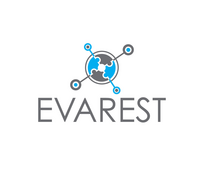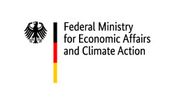The objective of EVAREST is the development and utilization of data products as economic goods in the ecosystem of food production based on an open, technical data platform, which is designed beyond company boundaries, as well as economic and legal utilization concepts.otivation
Motivation:
Digitalization represents an opportunity for the food industry to increase efficiency by using internal and external data. Currently, the data collected is only a means to an end. From the perspective of digital transformation, data also has the potential to become a product itself (i.e. a data product) with additional opportunities for exploitation. The potential of digital data as an independent economic good has only been marginally exploited. In food production, in particular, a massive amount of data is generated, which is currently only partially used in local data islands per production site, mostly to optimize production. The economic exploitation of data across locations and manufacturers is only carried out in parts at a high level of aggregation, resulting in a large part of the data value remaining unused.
Project Description:
A continuous collection and evaluation of data would already help manufacturers to optimize their production. If they see themselves as data producers, they can offer data products which can be linked to a higher-value network of data products on a supra-regional level. Data products can be integrated together with data products of the financial industry, meteorological institutes, etc. to enable geographical, ecological and economic analyses. This allows various stakeholders such as farmers, wholesalers, processing industries, etc. to find answers to questions about conditions, grievances, and forecasts for field or plantation crops regionally as well as supraregionally. Specific raw material data can be aggregated across the company in order to analyze quality and production parameters and to optimize the use of raw materials by reducing waste. The aggregation and analysis of such commodity market data in a global context enables stakeholders in the financial and insurance markets to predict price developments for raw material at an early stage.
Solution:
- Semi-automated generation of higher-value data products by using decentralized AI services (TUCANA Smart Analytics Services)
- Decentrally organized, global data market via IoT platforms (Cumulocity) with mechanisms for the efficient distribution of the added value achieved among data producers/processors (Smart Contracts).
- Creation of a data market according to new European law.
Partners
- Die Agrarmarkt Informations-Gesellschaft mbH (AMI)
- Software AG
- Lindt & Sprüngli GmbH
- Universität des Saarlandes
- fir e.V. an der RWTH Aachen
- Bundesvereinigung der Deutschen Ernährungsindustrie (assoziierter Partner)


